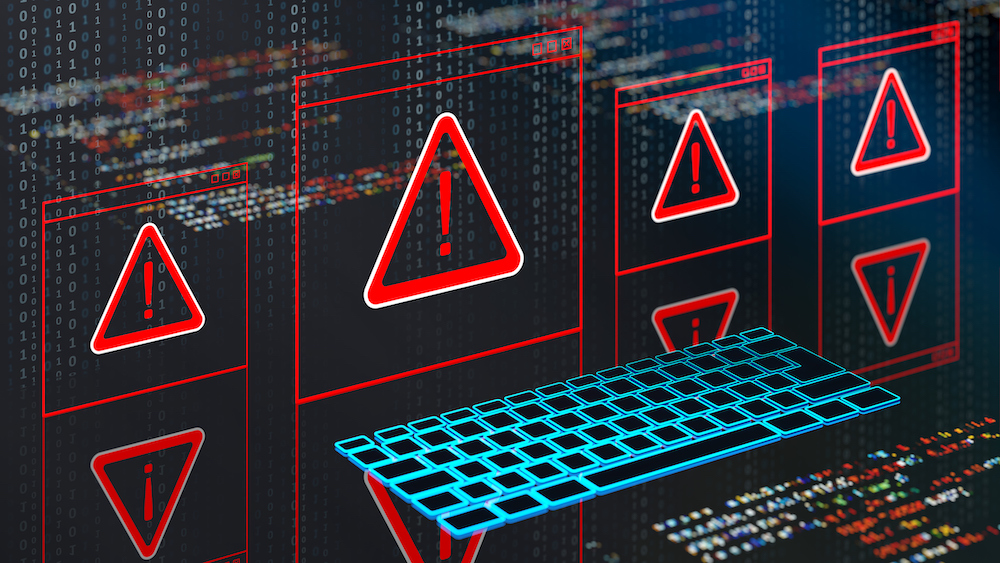Introduction: Senator Ron Wyden has publicly criticized the federal judiciary, including the Supreme Court, for what he describes as a failure to implement “basic cybersecurity” measures. This criticism stems from significant data breaches that have affected federal court systems, raising concerns about national security and the protection of sensitive information. The senator’s remarks highlight a perceived gap between the critical nature of the judiciary’s operations and its cybersecurity posture. (https://arstechnica.com/security/2025/08/senator-to-supreme-court-justice-federal-court-hacks-threaten-us-security/)
In-Depth Analysis: Senator Wyden’s critique centers on two major breaches that have impacted the federal judiciary. The first occurred in 2020 and reportedly exposed confidential files. The second, more recent breach, took place in 2025 and also involved the compromise of sensitive data. Both incidents are attributed to foreign adversaries, suggesting a sophisticated and persistent threat actor targeting the U.S. judicial system. (https://arstechnica.com/security/2025/08/senator-to-supreme-court-justice-federal-court-hacks-threaten-us-security/)
Wyden’s argument is that the judiciary, despite its crucial role in national security and the handling of highly sensitive information, has not adequately prioritized or implemented fundamental cybersecurity practices. He specifically called out the Supreme Court, implying that the highest court in the land should be setting an example for robust security. The senator’s concern is not just about the technical vulnerabilities but also about the potential consequences of these breaches, which he believes extend to broader U.S. security interests. The exposure of confidential files could, in theory, provide adversaries with valuable intelligence or leverage. (https://arstechnica.com/security/2025/08/senator-to-supreme-court-justice-federal-court-hacks-threaten-us-security/)
The senator’s methodology appears to be based on publicly available information regarding these breaches and his own assessment of the judiciary’s response and preparedness. While the article does not detail specific technical vulnerabilities or the exact nature of the “basic cybersecurity” measures that are allegedly missing, Wyden’s language suggests a focus on foundational security controls that should be standard for any organization handling sensitive data, let alone a branch of the federal government. The comparison of viewpoints is limited in the provided source material, as it primarily presents Senator Wyden’s perspective. However, the fact that breaches have occurred and are attributed to foreign adversaries serves as factual evidence supporting the existence of a security problem. The inference drawn by Wyden is that the judiciary’s response or proactive measures have been insufficient, leading to these compromises and posing a threat to U.S. security. (https://arstechnica.com/security/2025/08/senator-to-supreme-court-justice-federal-court-hacks-threaten-us-security/)
Pros and Cons: The primary strength of Senator Wyden’s position, as presented in the source, is its focus on accountability and the critical importance of securing sensitive government data. By highlighting the breaches and attributing them to foreign adversaries, he brings attention to a potentially significant national security vulnerability. His call for improved cybersecurity within the judiciary, particularly at the Supreme Court level, underscores the need for leadership and robust security practices across all branches of government. (https://arstechnica.com/security/2025/08/senator-to-supreme-court-justice-federal-court-hacks-threaten-us-security/)
A potential weakness, or at least an area where further detail would be beneficial, is the lack of specific information regarding the exact nature of the cybersecurity failures or the proposed solutions. While the senator calls for “basic cybersecurity,” the article does not elaborate on what specific measures are lacking or what constitutes an adequate response. This leaves room for interpretation regarding the scope of the problem and the necessary remediation. Furthermore, the source does not include any direct response or counter-argument from the federal judiciary or the Supreme Court, limiting a fully balanced assessment of the situation. (https://arstechnica.com/security/2025/08/senator-to-supreme-court-justice-federal-court-hacks-threaten-us-security/)
Key Takeaways:
- Senator Ron Wyden has criticized the federal judiciary for inadequate cybersecurity practices.
- The judiciary has experienced at least two significant data breaches in 2020 and 2025, reportedly by foreign adversaries.
- These breaches exposed confidential files, raising concerns about national security.
- Wyden specifically called out the Supreme Court for its cybersecurity posture.
- The senator’s critique implies a failure to implement fundamental security measures within the judicial branch.
- The exposure of sensitive court data could provide adversaries with valuable intelligence or leverage.
Call to Action: Educated readers should consider monitoring further developments regarding the federal judiciary’s cybersecurity initiatives and any responses from the courts to Senator Wyden’s criticisms. It would be prudent to look for reports detailing specific security upgrades, policy changes, or legislative actions aimed at enhancing the protection of sensitive judicial data. Understanding the specific vulnerabilities and the proposed solutions will be crucial in assessing the effectiveness of future cybersecurity efforts within this critical branch of government. (https://arstechnica.com/security/2025/08/senator-to-supreme-court-justice-federal-court-hacks-threaten-us-security/)
Annotations/Citations: All information presented in this analysis is derived from the article titled “Senator to Supreme Court justice: Federal court hacks threaten US security” published on Ars Technica, accessible at https://arstechnica.com/security/2025/08/senator-to-supreme-court-justice-federal-court-hacks-threaten-us-security/


Leave a Reply